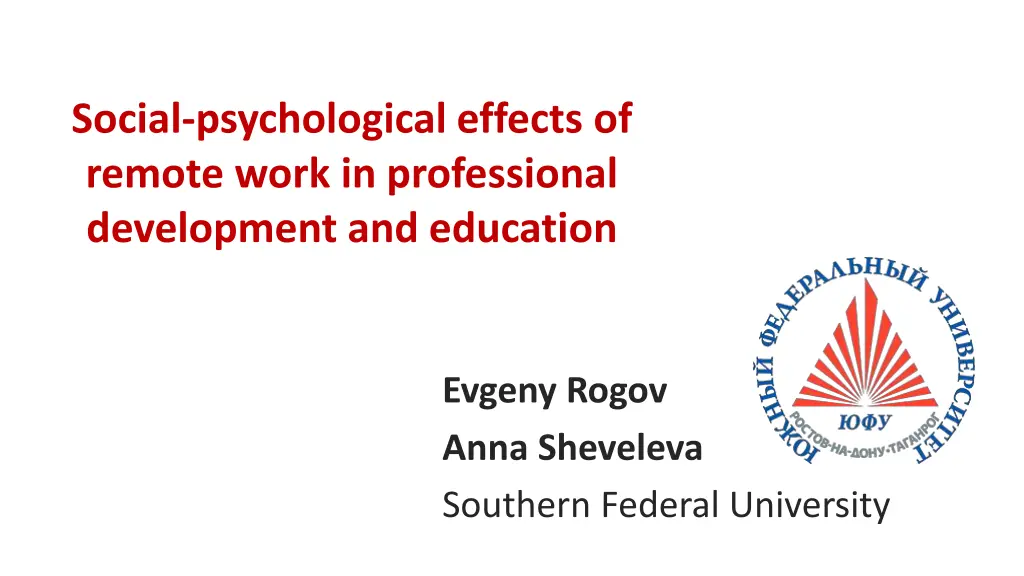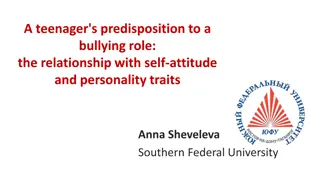
Social-Psychological Effects of Remote Work in Professional Development
Explore the social-psychological impact of remote work in professional development and education, including interaction, communication, formal and informal groups, personal development, and more. Presented by Evgeny Rogov and Anna Sheveleva from Southern Federal University.
Download Presentation

Please find below an Image/Link to download the presentation.
The content on the website is provided AS IS for your information and personal use only. It may not be sold, licensed, or shared on other websites without obtaining consent from the author. If you encounter any issues during the download, it is possible that the publisher has removed the file from their server.
You are allowed to download the files provided on this website for personal or commercial use, subject to the condition that they are used lawfully. All files are the property of their respective owners.
The content on the website is provided AS IS for your information and personal use only. It may not be sold, licensed, or shared on other websites without obtaining consent from the author.
E N D
Presentation Transcript
Social-psychological effects of remote work in professional development and education Evgeny Rogov Anna Sheveleva Southern Federal University
Background for remote work and education organization worldwide spreading COVID-19 Technical opportunities
Psychological effects of remote work and education organization Social-psychological effects: 1) interaction and communication; 2) formal and informal groups and joint activities; 3) personal development. Social- psychological Individual- personal Organizational- managerial
Interaction and communication Experience of isolation Virtual interaction with sense of anonymity Text forms of communication Role of visual non-verbal communication system Opportunities of feedback giving and reception
Formal and informal groups and joint activities Multiple organizational membership Educational mobility The difficulties: in administrating and coordination of joint work, in result assessment Sense of grope identity and cohesion Loyalty to educational organization Involvement in joint activities Social support within group or organization.
Personal development individual system of values and interests goals setting and achieving individual behavior and subjective well-being vocational choices and motives
Rogov Evgeny Ivanovich, Doctor of Educational Sciences, Full Professor, eirogov@sfedu.ru Sheveleva Anna Maksimilianovna, PhD in Psychology, Associate Professor amsheveleva@sfedu.ru THANKS FOR ATTENTION! Department of Organizational and Applied Psychology of Education, Academy of Psychology and Educational Sciences, Southern Federal University Rostov-on-Don, Russia

